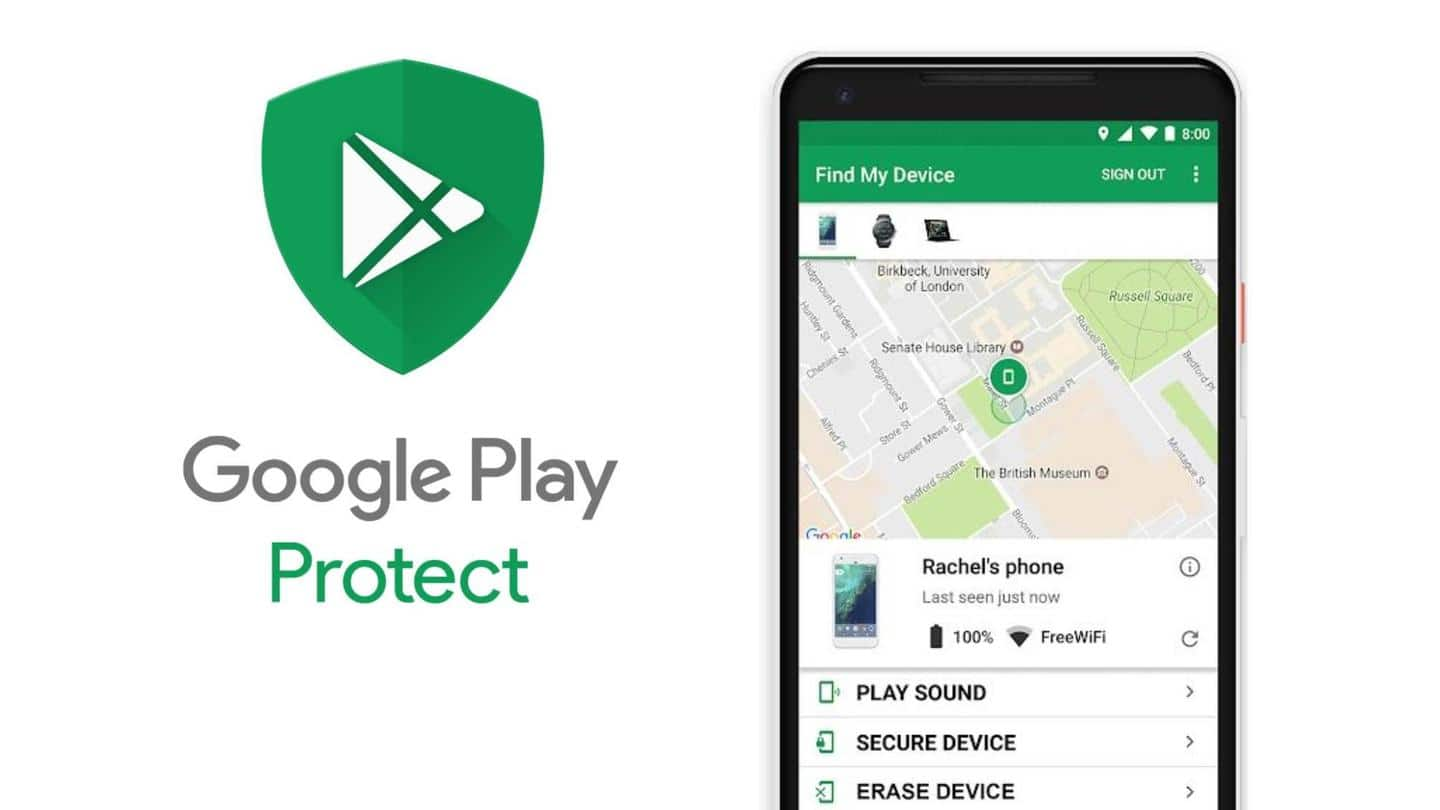
Google's Find My Device could replicate Apple's Find My network
What's the story
While Apple, Samsung, and a bunch of other object tracker manufacturers have their own networks that crowdsource information to locate missing devices, it appears that Google now wants a piece of this pie.
Reports suggest the search giant could be developing a crowdsourced network akin to Apple's Find My network, which helps its users easily identify and locate lost devices using AirTags.
Here's more.
Finding code
Google Play Services APK teardown revealed new hidden code
GSMArena reported a teardown of the Android application package (APK) for Google Play Services' beta build version number 21.24.13 revealed two strings of obfuscated code.
The first read, "Allow your phone to help locate your and other people's devices," and the second stated, "Find My Device network."
Essentially, Google could be deliberating using every Android device for crowdsourcing the whereabouts of every other Android device.
Current situation
Presently, Find My Device only helps you locate your devices
At present, Google's Find My Device network helps you locate only your devices that are linked to your Google account. This relies solely on your device's location data that is relayed to you via Google.
The APK teardown suggests that the search giant will take the help of your device(s) location data to find lost or stolen devices.
Web of devices
Apple's Find My network crowdsources device location data
Crowdsourcing device locations works passively in the case of Apple's Find My network. As you move around, your iPhone's Bluetooth, Ultra-Wideband (UWB), and WiFi will passively log the various devices it encounters.
This logged data is combined with other such data from every Apple device on the Find My network, thereby creating a web of devices where each could know the other's position.
Trust factor
Unlike Apple, Android's data collection and transmission should be transparent
The location data collected from your Apple device is transmitted to the lost device's owner "securely" by Apple.
However, that idea may work for Apple and its walled ecosystem, but with over three billion devices running on Android, we believe that it is necessary for the process of location data collection and transmission to be made optional (so users can opt-in) and transparent.
Gamechanger?
Android could support smaller locating networks with its device volume
Moreover, if Android introduced the rumored Find My Device network, we think it would be a gamechanger for small-scale object tracker manufacturers such as Tile, provided Google licenses access to the network to such companies.
However, an APK teardown isn't concrete evidence that Google's Find My Device plans will materialize. If it does, we hope it's unlike Apple's implementation built on promises of transparency.